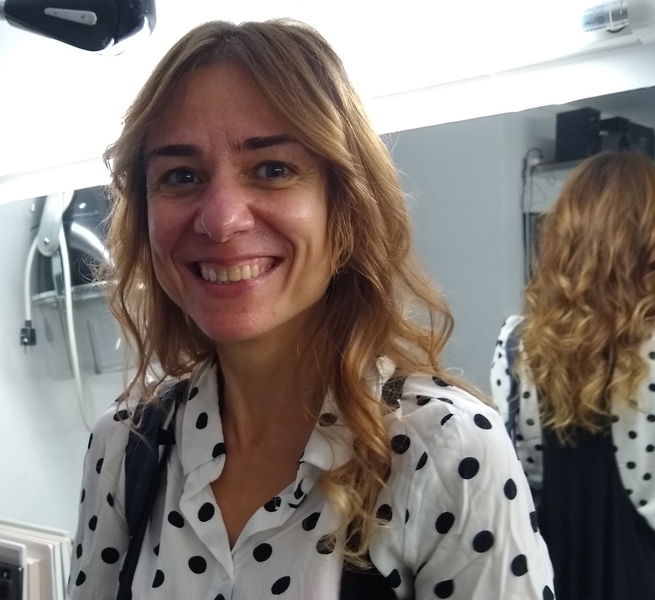Objectives
Abstract: Artificial Intelligence (AI) and Life Sciences are revolutionizing scientific research. The deluge and heterogeneity of biomedical data is an invaluable resource to advance AI, and the use of AI methods in Biomedicine is fundamentally transforming the capacity for scientific discovery across all areas of Biomedicine. Most of the current AI methods developed in almost all different biomedical fields such as drug discovery, disease diagnosis and precision medicine are based on data-driven complex Machine Learning (ML) algorithms that lack transparency and accountability to understand the reasoning underlying their predictions, and pose a challenge for both end-users and AI developers. These methods also generate a massive amount of research data that need to be findable, accessible, interoperable and reusable (FAIR) to follow the European Commission’s open science policy to improve the quality and efficiency of research. In this talk, I will share my recent work towards interpretable ML and explainable AI for a robust biomedical discovery and future research directions. As a computational Quantum Chemistry and Bioinformatics researcher by training, I am interested in both increasing our understanding of the biology underlying the etiology and management of human diseases and developing novel AI methods and infrastructure for this endeavour. My approach is based on integrating biomedical researchers’ knowledge, big prior knowledge from public databases, and data from patients and biological research and exploiting it by using Semantic Web and FAIR technologies such as ontologies and knowledge graphs with neuro-symbolic and explainable AI methods to ultimately generate understandable and testable predictions in a knowledge-driven and transparent way. I am author of tools such as DisGeNET, GA4GH Phenopackets and structured reviews to support disease discovery, therapy, and clinical research, which are published in relevant journals such as Bioinformatics and Database (Oxford). I am also actively involved in ELIXIR for Life Sciences infrastructure leading efforts in ML and rare diseases, also in the RDA FAIR4ML interest group for research management, and the ISCB Bio-Ontologies COSI as a member of the organizing committee.
 Short bio: Núria Queralt Rosinach, born in Reus (Catalonia, Spain), is a Chemist by training, and a post-doc researcher in biomedical informatics at the department of human genetics in the Leiden University Medical Center, where she joined the Biosemantics Group in 2020. She obtained a PhD in Chemistry from the Rovira i Virgili University (Spain) in 2010, following a BSc in Chemistry from the same university in 2001. In addition to Chemistry, she obtained an MSc in Bioinformatics for Health Sciences from the Pompeu Fabra University or UPF (Spain) in 2008 and re-oriented her career to biomedical informatics with 1.5 years work experience as bioinformatician joining the IDIBAPS biomedical research institute (Spain) in 2010, two postdocs (in the Integrative Biomedical Informatics Group at UPF (Spain) in 2012, and in the Su Lab at Scripps Research (US) in 2016), and a research stay in the Bio-Ontology Research Group at KAUST (KSA) in 2019. She has expertise in Semantic Web technologies, Artificial Intelligence (AI) approaches over knowledge graphs, formal logic and interpretable machine learning for hypothesis generation and drug repurposing. She is currently investigating how to exploit FAIR data for explainable AI and hypothesis generation to improve rare, common and infectious disease discovery, how to integrate FAIR research and patient data for modelling, prediction, rationalization and analysis, and how to make FAIR data clinically actionable for bench to bedside translation.
Short bio: Núria Queralt Rosinach, born in Reus (Catalonia, Spain), is a Chemist by training, and a post-doc researcher in biomedical informatics at the department of human genetics in the Leiden University Medical Center, where she joined the Biosemantics Group in 2020. She obtained a PhD in Chemistry from the Rovira i Virgili University (Spain) in 2010, following a BSc in Chemistry from the same university in 2001. In addition to Chemistry, she obtained an MSc in Bioinformatics for Health Sciences from the Pompeu Fabra University or UPF (Spain) in 2008 and re-oriented her career to biomedical informatics with 1.5 years work experience as bioinformatician joining the IDIBAPS biomedical research institute (Spain) in 2010, two postdocs (in the Integrative Biomedical Informatics Group at UPF (Spain) in 2012, and in the Su Lab at Scripps Research (US) in 2016), and a research stay in the Bio-Ontology Research Group at KAUST (KSA) in 2019. She has expertise in Semantic Web technologies, Artificial Intelligence (AI) approaches over knowledge graphs, formal logic and interpretable machine learning for hypothesis generation and drug repurposing. She is currently investigating how to exploit FAIR data for explainable AI and hypothesis generation to improve rare, common and infectious disease discovery, how to integrate FAIR research and patient data for modelling, prediction, rationalization and analysis, and how to make FAIR data clinically actionable for bench to bedside translation.
Speakers
Speaker: Núria Queralt Rosinach, Leiden University Medical Center (Amsterdam)
Host: Alfonso Valencia, Life Sciences Department Director, LS, BSC


